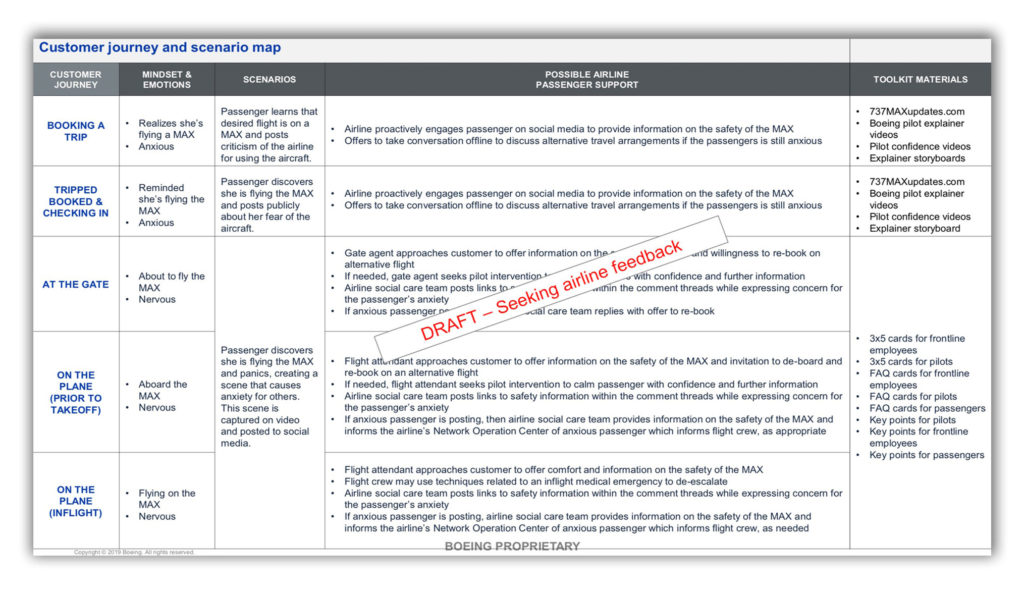Well, what do you know? the best-selling book over the last decade was E.L. James’s 50 Shades of Grey, which which sold 15.2 million copies from 2010 through 2019. It was originally self-published as a Kindle ebook and print-on-demand publication in June 2011; the publishing rights were acquired by Vintage Books in March 2012. Smart move. I wonder what they paid for them.
Quote of the Day
“You don’t need to hack people to spy on them if you can get people to willingly download this app to their phone. By uploading contacts, video chats, location, what more intelligence do you need?”
- Patrick Ward, a security expert consulted by the New York Times for “ Total Surveillance Is Not What America Signed Up For.”
Holy Cow! er, water
This is the kind of thing you really couldn’t make up.
A Roman Catholic church in rural Louisiana hoping to maximize its blessings has come up with a way to do it: filling up a crop-duster plane with holy water and letting the sanctified liquid mist an entire community.
“We can bless more area in a shorter amount of time,” Rev. Matthew Barzare of St. Anne Church in Cow Island, La., told NPR.
Following this past Saturday’s mass, parishioners from the church in southwestern Louisiana headed to an airstrip about five minutes away from the church.
Churchgoers brought with them 100 gallons of water, which was loaded into the crop duster.
“I blessed it there, and we waited for the pilot to take off,” Barzare said, noting that it was the largest amount of water he had ever turned holy.
“I’ve blessed some buckets for people and such, but never that much water,” he said.
The pilot had instructions to drizzle certain parts of the community, including churches, schools, grocery stores and other community gathering places.
Word of it raining blessings spread fast in Cow Island, which Barzare points out is not really an island. But when hurricanes strike, he said, the community is typically surrounded by water, hence the name.
Some distant members of my extended family live in Louisiana. I’m beginning to worry about them.
Boeing’s idea of reassurance
Source: New York Times
Boeing’s 737MAX remains grounded (rightly) as the company struggles to overcome the design flaw that caused two crashes that killed everyone on board. In the meantime, Boeing has been surveying airline passengers across the world to assess their thoughts about flying in the MAX once it gets certification. The news is not good, according to this report in the New York Times: people are nervous about flying in the plane. In order to get ahead of the problem, Boeing has been preparing draft briefing materials for airline staff giving guidance on how to soothe and reassure nervous passengers. Above is a draft of the crib-sheet that’s been obtained by the Times.
As you’d expect, it’s an exercise in consumer manipulation.
This has a personal dimension for me. The place to which I most often fly is Ireland. And the only way to get there from Stansted, my local airport, is via RyanAir. But RyanAir plans to replace its existing fleet of Boeing aircraft with 737MAXs. So will I trust the Federal Aviation Administration enough to continue flying RyanAir? Or will I have to plump for much less convenient alternatives?
Hmmm…
Merry Xmas
Quote of the Day
”A man of small virtue, inclined to extravagance and alcoholism”.
- James Joyce’s description of himself to the psychologist Carl Jung.
Xmas linkblog
- We’re Getting Old, but We’re Not Doing Anything About It Like climate change, the aging of our societies demands serious reconsideration of the way we live. But confronting the issue and its implications requires human beings to do what they hate doing — thinking about the future. Yep.
- Rethinking privacy in the age of psychological targeting Direct regulation of psychological targeting and privacy by design may lift from users the burden of actively protecting their privacy, write Sandra Matz, Ruth Elisabeth Appel and Michal Kosinski.
- Fake and dangerous kids products are turning up for sale on Amazon 60% of the stuff sold on Amazon does not come from Amazon but from third-party sellers who use Amazon marketplace. And many of their products are counterfeit fakes, sometimes dangerous ones. But Amazon is not liable for stuff sold on its site, unlike a conventional bricks ‘n mortar retailer.
- A Conversation With Rudy Giuliani Over Bloody Marys at the Mark Hotel You think Trump is crazy? You should talk to his lawyer. This reporter did.
Regulatory puzzles
Interesting conundrum in Ben Evans’s weekly newsletter:
A German court has banned Uber for not applying with taxi regulations; conversely, AirBNB won in France: it can’t be forced to be regulated as an estate agent. The endless ‘software eats the world’ question: how far do we treat a new way of doing X in the same way as the old one? Uber is clearly a different way of doing what we previously called taxis and ‘limousines’ and should probably be subject to the same high-level policy objectives. (You might be able to achieve those objectives differently – you don’t need a physical meter to have a guaranteed fare because GPS can do that – but the objectives might not change.) On the other hand, AirBNB is not doing the same things that a conventional real estate agent (or hotel) does ‘but with an app and with GPS’ – it’s doing something different, and poses different questions (which might or might not require new regulation).
There’s no single regulatory bullet. It’s horses for courses.
Linkblog
- Facebook and Twitter shutter pro-Trump network reaching 55 million accounts The accounts used AI-generated faces to ‘masquerade’ as Americans. The assault on democracy continues apace.
- Questions worth asking And worth trying to answer. Like why is life expectancy in Hong Kong the highest in the world? From Tyler Cowen.
- Total Surveillance Is Not What America Signed Up For Tell that to the tech companies. Terrific New York Times reporting.
- On the Measure of Intelligence Interesting long paper by François Chollet, a prominent machine-learning scientist at Google, on future models of artificial intelligence, how we would define it, and what we might do next.
70 is NOT “the new 50”
What’s weird about a relentlessly ageing society is its equally relentless determination to avoid talking about the realities of ageing and death. Suddenly it’s ‘ageist’ to refer to somebody as “old”. They’re just “older” — which is idiotic, when you think about it: everybody is, by definition, older than somebody else. And as for the slogan that “70 is the new 50″… (Which, as an interesting NYT piece puts it, is “a rosy falsehood contradicted by any serious study of the age curve for major diseases”. For people older than 85, for example, the risk of developing Alzheimer’s is 14 times higher than for those ages 65 to 69.)
And, as the piece points out, the current decline in birth rates in countries like the US means that
there will be many fewer young and middle-aged people to care for the frailest of the old, whose death rate has not increased in recent years. The population of the prime caregiving age group, from 45 to 64, is expected to increase by only 1 percent before 2030, while the population over 80 will increase by 79 percent.
Our inability to think about — let alone plan for — the future is obviously a cultural thing (and is different in non-Western societies). But I wonder how much of it is also a by-product of the way Western democracies are now driven by five-year electoral cycles. No politician nowadays seems capable of long-term thinking.
And then there is the strange fact that five of the candidates for President — Joe Biden, Michael Bloomberg, Bernie Sanders, Donald Trump and Elizabeth Warren — are septuagenarians.
[Full disclosure: this blogger is over 70 and can testify that it is not the new 50! Nor is he running for president of anything.]


